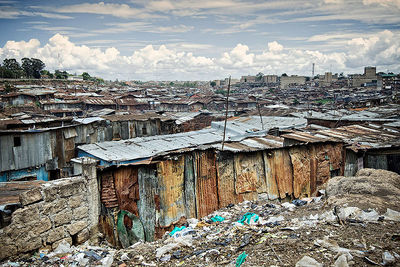imported>Chunbum Park |
imported>John Stephenson |
| (25 intermediate revisions by 4 users not shown) |
| Line 1: |
Line 1: |
| == '''[[Japanese English]]''' ==
| | {{:{{FeaturedArticleTitle}}}} |
| ----
| | <small> |
| '''Japanese English''' (JE) refers to the varieties of [[English language|English]] mainly used by non-[[native speaker]]s whose first language is [[Japanese language|Japanese]], usually in [[Japan]]. This may include English learned as a [[language learning|foreign language]], its fashionable use in the [[media]] and [[advertising]] (often disparagingly called 'Engrish' to mimic how Japanese-speakers non-fluent in English may pronounce 'English'), or the use of English as a working language in certain institutions such as research centres or publications like the ''[[Japan Times]]''.
| | ==Footnotes== |
| | |
| When used for a communicative purpose, such as in English-language [[newspaper]]s, this variety is typically very similar to [[American English]] in [[vocabulary]], [[grammar]] and [[spelling]]. However, there are a number of words used in JE which either originate in Japan or have developed a separate meaning: for example, ''prefecture'' does not refer to a political district in native English-speaking nations. ''[[Police box]]'' is used as the translation for 交番 ''[[kooban]]'', but in fact this is a local police station, rather than a callbox specifically for contacting the [[police]], as in the [[United Kingdom|UK]]. Another example is ''dust box'', Japanese English for what many English speakers might call a ''waste bin'' or a ''trash can''. The expression rarely appears in Japanese itself, which prefers 塵箱 ''gomibako''.<ref>''about.com'': '[http://japanese.about.com/library/blpod071300.htm Japanese phrase of the day (useful Japanese phrases) - Gomi o dasu].' ごみを出す ''Gomi o dasu'' means 'take out the rubbish/garbage'.</ref>Additionally, many English words exist in [[Japanese language|Japanese]], but these [[loanword]]s are considered part of its vocabulary, just as many Japanese words such as ''karate'' form part of English.
| |
| | |
| An alternative term sometimes applied to JE is ''Japlish''. Since ''Jap'' is [[racism|racist]] English [[slang]] for a [[Japanese people|Japanese person]], many authors may avoid this term. Alternatively, it has been used to refer to a special set of English loanwords in Japanese itself (和製英語 ''wasei-eigo'' - literally 'made-in-Japan English') - words not used in a way that English speakers would readily understand.<ref>For example, in Murray (1999), which includes a section on ''wasei-eigo''. One example of this is ''desuku'' (デスク) from English ''desk'', which is actually a title for a [[journalism|journalist]]. In Japanese, job titles can be used as forms of address, with the [[honorific]] ''-san'' (-さん). It is therefore acceptable to refer to a journalist, for example, as ''desuku-san'' (literally 'Mr Desk'). These words are subject to Japanese grammar just as a native item would be; e.g. they can form compounds with Japanese words, and the meaning may differ, as in ''famikon'' (ファミコン) 'family computer', meaning 'games console'. ''Wasei-eigo'' words are usually written in ''[[katakana]]'', though occasionally other scripts may be used, as in ''purinto kurabu'' (プリント倶楽部) - i.e. 'print club' (a special kind of [[photo booth]]), the full form of ''[[Japanese popular culture#Purikura|purikura]]'' (プリクラ).</ref>
| |
| | |
| | |
| ''[[Japanese English|.... (read more)]]''
| |
| | |
| {| class="wikitable collapsible collapsed" style="width: 90%; float: center; margin: 0.5em 1em 0.8em 0px;"
| |
| |-
| |
| ! style="text-align: center;" | [[Japanese English#Footnotes|notes]]
| |
| |-
| |
| |
| |
| {{reflist|2}} | | {{reflist|2}} |
| |}
| | </small> |
Latest revision as of 09:19, 11 September 2020

The Mathare Valley slum near Nairobi, Kenya, in 2009.
Poverty is deprivation based on lack of material resources. The concept is value-based and political. Hence its definition, causes and remedies (and the possibility of remedies) are highly contentious.[1] The word poverty may also be used figuratively to indicate a lack, instead of material goods or money, of any kind of quality, as in a poverty of imagination.
Definitions
Primary and secondary poverty
The use of the terms primary and secondary poverty dates back to Seebohm Rowntree, who conducted the second British survey to calculate the extent of poverty. This was carried out in York and was published in 1899. He defined primary poverty as having insufficient income to “obtain the minimum necessaries for the maintenance of merely physical efficiency”. In secondary poverty, the income “would be sufficient for the maintenance of merely physical efficiency were it not that some portion of it is absorbed by some other expenditure.” Even with these rigorous criteria he found that 9.9% of the population was in primary poverty and a further 17.9% in secondary.[2]
Absolute and comparative poverty
More recent definitions tend to use the terms absolute and comparative poverty. Absolute is in line with Rowntree's primary poverty, but comparative poverty is usually expressed in terms of ability to play a part in the society in which a person lives. Comparative poverty will thus vary from one country to another.[3] The difficulty of definition is illustrated by the fact that a recession can actually reduce "poverty".
Causes of poverty
The causes of poverty most often considered are:
- Character defects
- An established “culture of poverty”, with low expectations handed down from one generation to another
- Unemployment
- Irregular employment, and/or low pay
- Position in the life cycle (see below) and household size
- Disability
- Structural inequality, both within countries and between countries. (R H Tawney: “What thoughtful rich people call the problem of poverty, thoughtful poor people call with equal justice a problem of riches”)[4]
As noted above, most of these, or the extent to which they can be, or should be changed, are matters of heated controversy.
- ↑ Alcock, P. Understanding poverty. Macmillan. 1997. ch 1.
- ↑ Harris, B. The origins of the British welfare state. Palgrave Macmillan. 2004. Also, Oxford Dictionary of National Biography.
- ↑ Alcock, Pt II
- ↑ Alcock, Preface to 1st edition and pt III.
